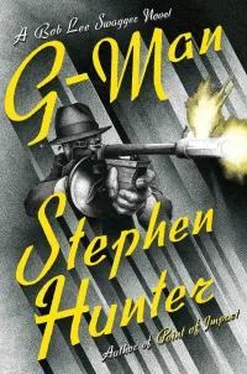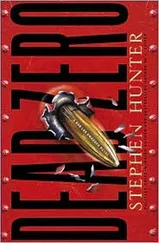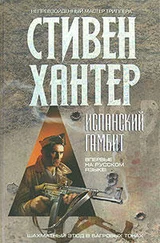Стивен Хантер - G-Man
Здесь есть возможность читать онлайн «Стивен Хантер - G-Man» весь текст электронной книги совершенно бесплатно (целиком полную версию без сокращений). В некоторых случаях можно слушать аудио, скачать через торрент в формате fb2 и присутствует краткое содержание. Жанр: Старинная литература, на английском языке. Описание произведения, (предисловие) а так же отзывы посетителей доступны на портале библиотеки ЛибКат.
- Название:G-Man
- Автор:
- Жанр:
- Год:неизвестен
- ISBN:нет данных
- Рейтинг книги:3 / 5. Голосов: 1
-
Избранное:Добавить в избранное
- Отзывы:
-
Ваша оценка:
- 60
- 1
- 2
- 3
- 4
- 5
G-Man: краткое содержание, описание и аннотация
Предлагаем к чтению аннотацию, описание, краткое содержание или предисловие (зависит от того, что написал сам автор книги «G-Man»). Если вы не нашли необходимую информацию о книге — напишите в комментариях, мы постараемся отыскать её.
G-Man — читать онлайн бесплатно полную книгу (весь текст) целиком
Ниже представлен текст книги, разбитый по страницам. Система сохранения места последней прочитанной страницы, позволяет с удобством читать онлайн бесплатно книгу «G-Man», без необходимости каждый раз заново искать на чём Вы остановились. Поставьте закладку, и сможете в любой момент перейти на страницу, на которой закончили чтение.
Интервал:
Закладка:
Stephen Hunter
G-Man
Also by Stephen Hunter
Point of Impact
Black Light
Time to Hunt
The 47th Samurai
Night of Thunder
I, Sniper
Dead Zero
The Third Bullet
Sniper’s Honor
Hot Springs
Pale Horse Coming
Havana
Dead Zero
Soft Target
The Master Sniper
The Second Saladin
Tapestry of Spies
The Day Before Midnight
Dirty White Boys
I, Ripper
Epigraph
Thus speaketh the red judge: “Why did this criminal commit murder? He meant to rob.”
I tell you, however, that his soul wanted blood, not booty: he thirsted for the happiness of the knife!
— Nietzsche, Thus Spake Zarathustra
Baby face
You’ve got the cutest little baby face
There’s not another one could take your place
You baby face
— Popular song by Harry Akst and Benny Davis, 1926
Dedication
For the late John Carroll
Great newspaperman, great guy
PRELUDE
EAST OF BLUE EYE, ARKANSAS
The present
The blades of the graders contoured the land to spec. They rounded hills, felled and flattened woods, scoured underbrush, crushed rocks, filled hollows, collapsed ravines. Nothing but raw earth remained. What had been complex became plain, according to the latest large-project construction principles. Streets had been staked out, while sewers and wiring and cable were planted in furrows. Then the houses would spring up, rows of them, all alike, but soon to be differentiated by their new owners. It was progress — or, at least, development — it was growth, it was capitalism, it was hope. It couldn’t be stopped, so mourning was pointless.
This land had sustained one family for more than two centuries, first claimed in the late 1780s by a quiet couple from over the mountains, where the war was just finishing. They gave no account of themselves. They and theirs stayed for seven generations, and for that whole time they were steady, solid; they went to church, they gave to charity, they did their share in emergency or crisis. But more, it turned out they were a family of heroes. Their boys learned to shoot; they learned the hunter’s patience, his stoicism, his courage, his mercy, his honor. They had a gift for the firearm, and more than a few of them took that gift off to war. Some made it back, some didn’t. Some became officers of the law, for in those days that too called for the shooter’s talent. They shot for blood many a time, and, again, some made it back and some didn’t.
They were all gone now. The last of them had sold off the place for a substantial amount and fled, not wanting to see what was done to his homestead and the homestead of his ancestors.
Now the contouring was all but finished. Only the old house remained, atop a hillock that dominated the spread, a comfortable, rambling joint that had been added to over the decades until it practically made no sense at all. The hill was too much for the graders and so the company brought in a big Cat excavator, the 326F L model, a machine classified medium by weight, and set it loose, under the guidance of a professional genius named Ralph.
From afar, it looked like some kind of Jurassic ritual. A yellow Tyrannosaurus rex had downed a Bronto or a Stegosaurus and now fed on soft underbelly. The knuckle boom of Ralph’s big Cat pierced and ripped and tore, its bucket armed with side cutters and teeth, taking down walls and floors swiftly, in a single day reducing what had been a large house to a large pile of rubble. The next day, using the bucket as an artist would a brush, Ralph cleared the shattered remnants of two centuries’ worth of history, loading them into the trucks, which hauled them off to the landfill. Finally, on the third day, only the foundation remained, and he directed the bucket to continue its feast of destruction, smashing the stones into smaller chunks, then scooping them up for disposal. It was all going according to plan — until it wasn’t.
The managers saw him stop, pop the big machine out of gear, turn off its hydraulics, then leap from the yellow house, dash along the tread and swing down off the boom, pass under the knuckle, and reach the bucket, which was frozen in place on a particularly large chunk of foundation that would not shatter according to plan.
They approached and swiftly became an inspection committee.
“Something wrong, Ralph?”
“You didn’t bust a pump or lose a piston?”
“Did you spring a hydraulic leak there, Ralph?”
Of course all this really meant but one thing: how much is this going to cost us?
But Ralph was on his knees, studying on the joinery between the bucket’s teeth — those hard T. rex fangs — and earth.
“I felt something,” he said. “You know, you get so you can read the vibrations. It wasn’t stone, dirt, pipe — nothing like that.”
He poked, prodded, messed around with a spade.
“What’d it feel like?” he was asked.
“Some kind of metal. I don’t know, a sheet or a—”
He stopped, spotting something, leapt forward, examined more closely, inserted the shovel’s blade, dug, pried, cleared, sought leverage, and finally, with a spray of dirt like an explosion, exposed something from the Great Beneath.
“Jesus,” he said, now pulling the treasure free, “it’s a strongbox of some kind.”
It was, looking like the sort of thing carried by Wells Fargo and subject to larceny by men in dusters and hats, with bandannas across their faces and Winchesters in their hands.
The committee gathered around. Curiosity now overcame their need, if only for a bit, to stay on schedule.
“Maybe it’s full of gold,” somebody remarked.
Ralph, whose genius was practical, not speculative, smacked at the padlock a few times with his spade, expertly driving the corner tip of its blade under the locking hasp, and the hasp’s old metal couldn’t bear the spike in pressure and broke open on the third blow.
The committee gathered closer as he tossed the busted lock away and pulled the lid back on the strongbox’s rusted hinges.
The contents were initially disappointing. A number of objects wrapped tightly in heavy canvas, loosely secured by disintegrating tape, their outlines muffled by the heavy swaddling. Ralph popped a Kershaw knife from the pocket of his jeans, where it had been clipped, cut the tape, and used the point of the blade to push through the mass of canvas. It gave way to an oily cloth wrapping, under which the thing, shed of its canvas raiments, assumed a familiar shape. At last, he got this final oily wrapping away from it and held it out, gleaming in the sun, for all to see.
“It’s a damned pistol,” he proclaimed.
“It’s an old .45 automatic,” someone who knew said.
“Old?” someone else said. “Hell, it looks brand-new!”
They were otherwise stunned into silence. Finally someone said, “Man, I bet that bad boy has a story to tell.”
PART I
CHAPTER 1
ARCADIA, LOUISIANA
May 23, 1934
Wasn’t much. Wasn’t a thing, really. Trees, an abundance of them, all green and dense, so thick you couldn’t see the forest for them. And closer in, the road. Gravel, not important enough to wear so important a name as Highway 154. That sounded like, well, civilization, and out here, in the boondocks of the boondocks, wasn’t civilization, just gravel and trees?
Читать дальшеИнтервал:
Закладка:
Похожие книги на «G-Man»
Представляем Вашему вниманию похожие книги на «G-Man» списком для выбора. Мы отобрали схожую по названию и смыслу литературу в надежде предоставить читателям больше вариантов отыскать новые, интересные, ещё непрочитанные произведения.
Обсуждение, отзывы о книге «G-Man» и просто собственные мнения читателей. Оставьте ваши комментарии, напишите, что Вы думаете о произведении, его смысле или главных героях. Укажите что конкретно понравилось, а что нет, и почему Вы так считаете.












